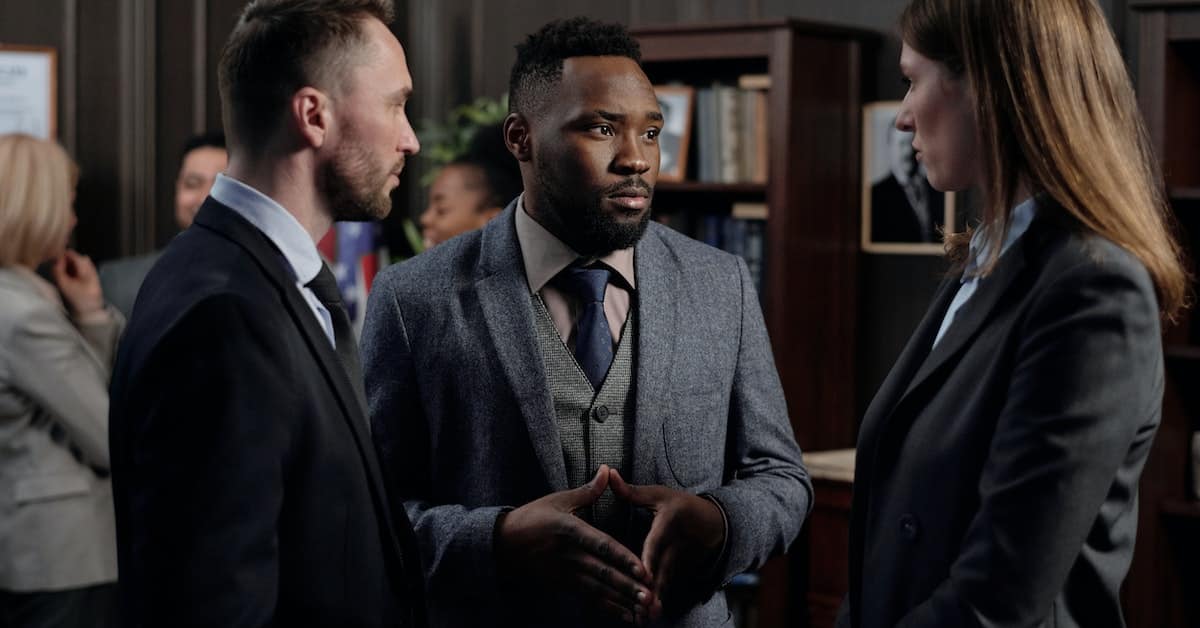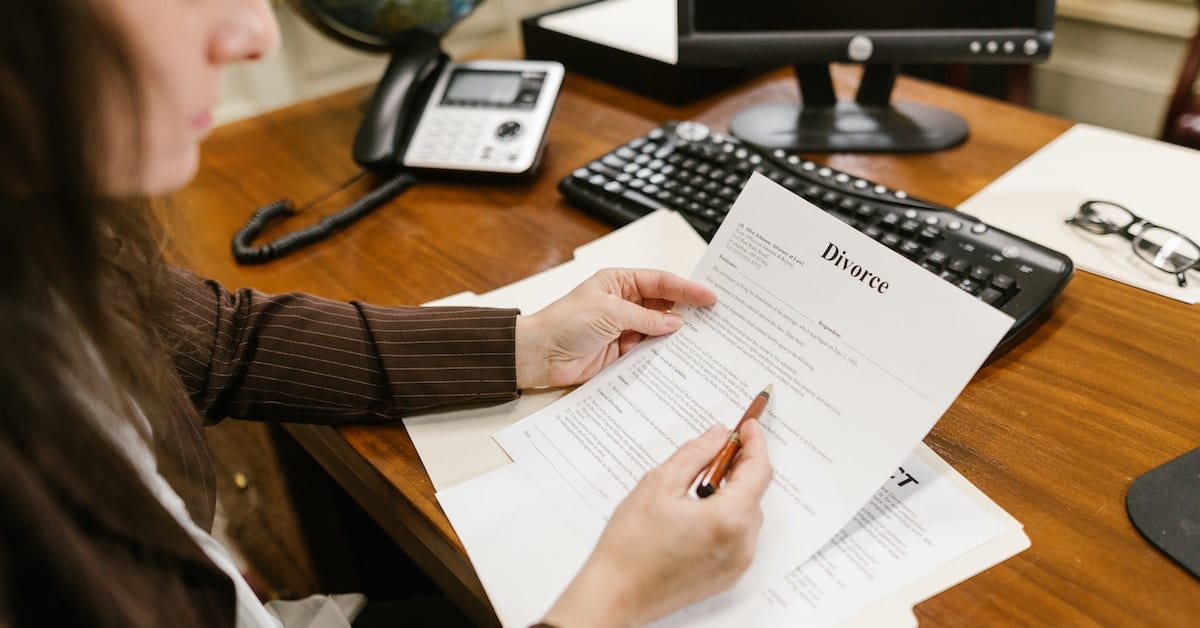Hiring a full-scope divorce lawyer– i.e., having a lawyer that takes on your entire case from start to finish– on average, pays more than $11,000 in attorney’s fees. This is a pricey service indeed, which leaves many couples wondering: can a divorce lawyer represent both parties during the divorce?
The truth is, though, you really can’t hire one lawyer to represent both of you. No matter how amicable your divorce is, one attorney representing two parties ultimately creates a conflict of interest. You could potentially hire a lawyer to act as a mediator, though, or find a lawyer who will offer specific services to help you through your DIY divorce.
Let’s take a closer look at what you need to know about legal representation in a divorce.
In most jurisdictions, a divorce lawyer can’t represent both parties in a divorce case. The practice of representing both parties is known as "dual representation" or "dual agency," and it generally raises significant conflicts of interest and ethical concerns.
When you’re getting divorced, you’re usually going to have to work out issues like property division, spousal support, child custody, and child support. With such high stakes, it isn’t uncommon for these topics to result in adversarial positions between the parties.

Representing both spouses would make it extremely difficult for the attorney to provide unbiased support to each party while maintaining the duty of loyalty to both.
Even if you and your spouse agree on all of the terms and conditions of your divorce, you are still technically in opposition to one another in the divorce suit. It ultimately creates a conflict of interest for one lawyer to represent both of you.
Family law attorneys are typically required to maintain a duty of undivided loyalty to their clients, advocating for their best interests. When representing both spouses, this loyalty becomes inherently compromised, as one party's best interest may conflict with the other's.
Even if you and your spouse are getting divorced in an amicable way, it’s not a good idea to try and use their attorney to get some advice. Not only is this a bad idea because your spouse’s lawyer is working to protect their best interests, but it could even result in a lawsuit.
Getting divorced is an inherently stressful and complex process. It is certainly possible to get a DIY divorce where you don’t hire a lawyer, but this is really only advisable if the divorce is uncontested and the two of you share very little in terms of property and debt.

Sometimes, people will think that hiring a lawyer will actually make things worse, as it could come off as adversarial in an otherwise amicable split. However, incorporating the help of legal representation can actually help things go more smoothly in many cases.
It’s much easier to eliminate potential conflicts when you have lawyers working for each of your best interests. Besides, arguments and problems can arise during the divorce process even if everything starts off very simple, and lawyers can help you navigate this type of occurrence.
Curious to learn more about the cost of divorce in Texas? Check out our articles about who pays for a divorce and the overall cost of divorce in the Lone Star State.
Even though a divorce attorney can’t represent both you and your spouse during a divorce, it is possible to hire one single attorney to help you out as you work to finalize your divorce.

The way that they can do this is through a process known as mediation. Mediation is where you bring in a neutral third party that will help you reach a marital settlement agreement that you can both live with.
Some couples go with this option because it means they can avoid the cost of working out the details of their divorce in court. Not only is litigation expensive and time-consuming, but it also means that a judge will ultimately be deciding what happens in terms of property division and other essential topics.
When you use a lawyer as a mediator, it’s important to understand that they can’t give legal advice. A lawyer can only act as a mediator if they haven’t previously represented one of the two spouses in a divorce case.
When a lawyer acts as a mediator, they can help your divorce process move along smoothly in a number of ways:
Again, lawyers who are working as a mediator aren’t able to give legal advice. If legal advice is what you’re looking for, you’re going to want actually to hire a lawyer.
Representing yourself in divorce is a tempting option– after all, attorney’s fees are by far the most expensive cost associated with divorce. At the same time, if getting a DIY divorce means that you don’t receive an outcome that works for you, you might kick yourself for not shelling out the cash to have professional legal representation.

There are a lot of good reasons to hire a lawyer when you’re getting divorced. For example, if your spouse has already hired an attorney, it’s highly advisable to seek legal counsel of your own.
It's worth noting that there are some couples that manage to make it through a divorce with only one spouse hiring an attorney. If the couples are on good terms and really do agree on everything, the attorney can draft up the paperwork. While this can be a great way to save some money, you really are kind of playing with fire– the attorney will only be beholden to the spouse who hired them, and the other spouse won’t be able to receive any legal advice from the lawyer.
If you are determined to represent yourself, it is possible to hire a lawyer for specific services– such as looking over your paperwork before you file it– rather than signing on for full representation. It’s also possible that you could have a consultation with a lawyer or pay for a session with them to have them answer your legal questions.
Once you realize you’re getting divorced and you start researching how much this is going to cost, there’s a good chance your jaw hit the floor when you see how much a lawyer will run you.
At the same time, there are some serious benefits to having legal representation in your divorce, particularly if there are children involved or you have any assets or debt to your name.
Ultimately, only you can decide if you need to hire a lawyer for your divorce. As you’re making your decision, one of the most powerful tools at your disposal is information. The more you are able to learn about what your divorce process will look like, the better able you will be to make choices that best support your post-divorce outcome.
Are you searching for more information about divorce in Texas? If so, make sure you check out our Texas Divorce Laws blog.